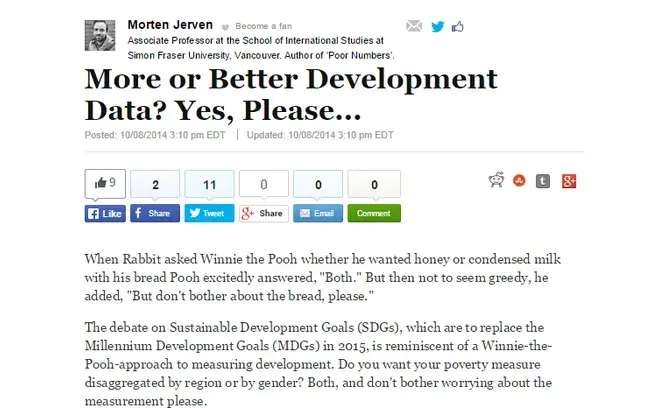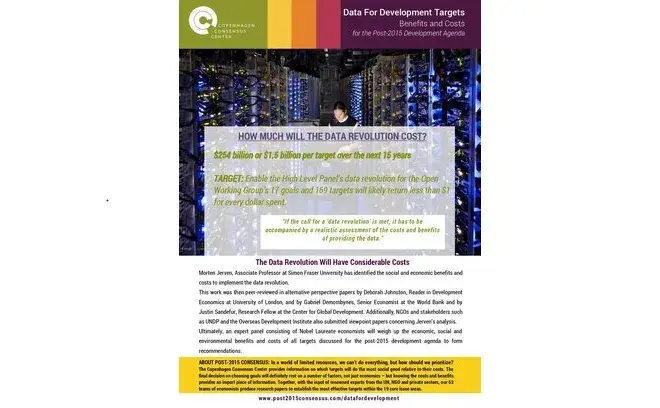Data for Development
The post-2015 data revolution should fundamentally be informed by a cost and benefit analysis. Targeting development as devised in a final outcome document by the Open Working Group presumes the availability of a range of statistics – most if it only available through survey data.
The best possible cost estimates indicate that if the previous MDG agenda would have been measured it would have cost about $28 billion. Yet, as we know there were gaps in the data and many indicators were never properly measured between 1990 and 2015. A future agenda with 169 targets has an estimated cost that is almost two times the total annual spent on official development assistance globally.
Scroll down to read our series of reports examining data for development targets for the post-2015 development agenda, written by leading economists and experts.
Assessment Paper
Morten Jerven, Associate Professor at Simon Fraser University, provides the first known estimate for the costs and benefits of the High Level Panel’s proposed ‘data revolution’ for the post-2015 agenda. He calculates that each target will cost $1.5 billion to measure globally over the next 15 years. Jerven argues that the data revolution is likely to over-stretch the capacities of statistical offices, shifting resources away from local needs towards global monitoring activities. Considering the likely benefits, enabling the data revolution for the Open Working Group’s Final Outcome of 169 targets would not be effective.
It is absolutely certain that 169 targets would not be measured appropriately. It is very likely that success and failure in the post-2015 agenda will be measured with deficient and bad data unless the list of targets is radically shortened.”
- Morten Jerven
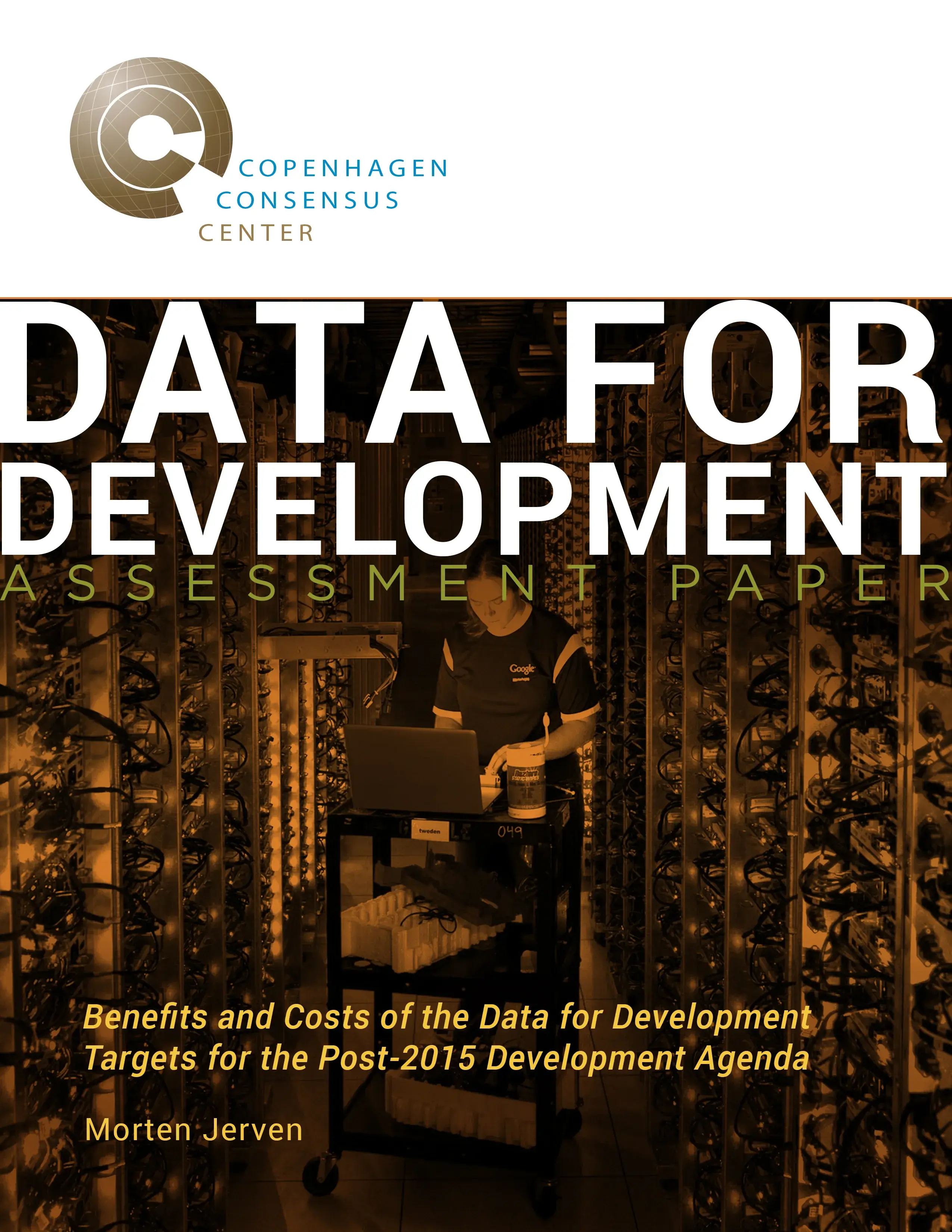
Perspective Paper
Deborah Johnston, Reader in Development Economics at School of Oriental and African Studies, University of London, supports the findings of the assessment paper. She notes in particular that the large costs of measurement support the need for prioritization of targets, and is highly complementary to the Post-2015 Consensus exercise.
By providing a cost estimate of each of the crucial surveys and of the overall MDG exercise, the paper also kick-starts a discussion about prioritization. It begs us to ask the question ‘which of our key development indicators can be feasibly and cost-effectively monitored?’”
- Deborah Johnston
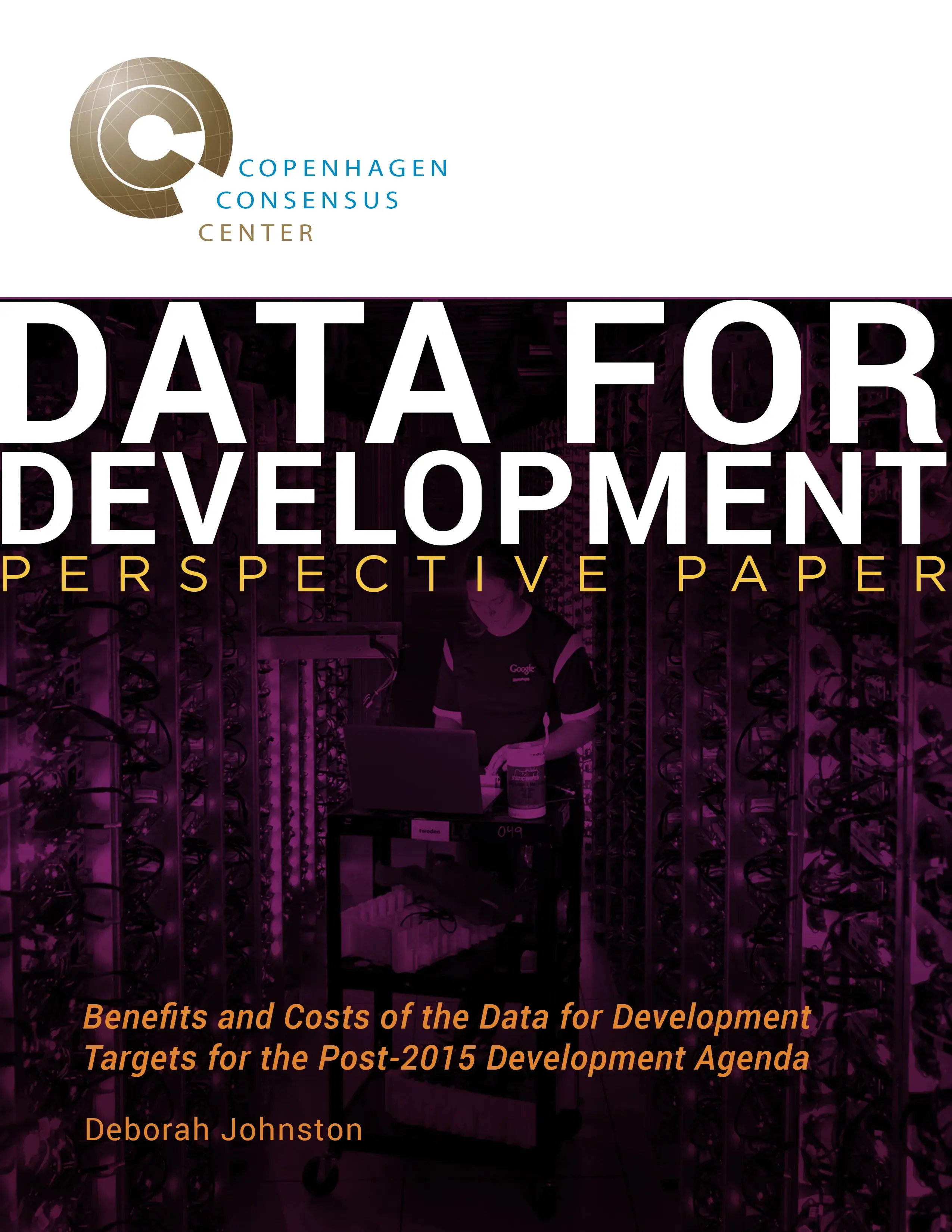
Perspective Paper
Gabriel Demombynes, Senior Economist at the World Bank, and Justin Sandefur, Research Fellow at the Center for Global Development, broadly agree that the data packages costed by Jerven represent the basic requirements for measurement. However, they argue that Jerven’s assessment fails to recognize that some of the countries included are wealthy enough to measure their own data, and would not require funds from the global pool of foreign aid. They suggest only countries with GDP per capita between $2000-$5000 be supported for measurement, representing a cost of approximately $300m per year.
…while $1 billion per year is a reasonable order-of-magnitude calculation of the costs of producing the specified data package, the costs of international funding support to produce the specified data package are much less very roughly $300 million.”
- Gabriel Demombynes and Justin Sandefur
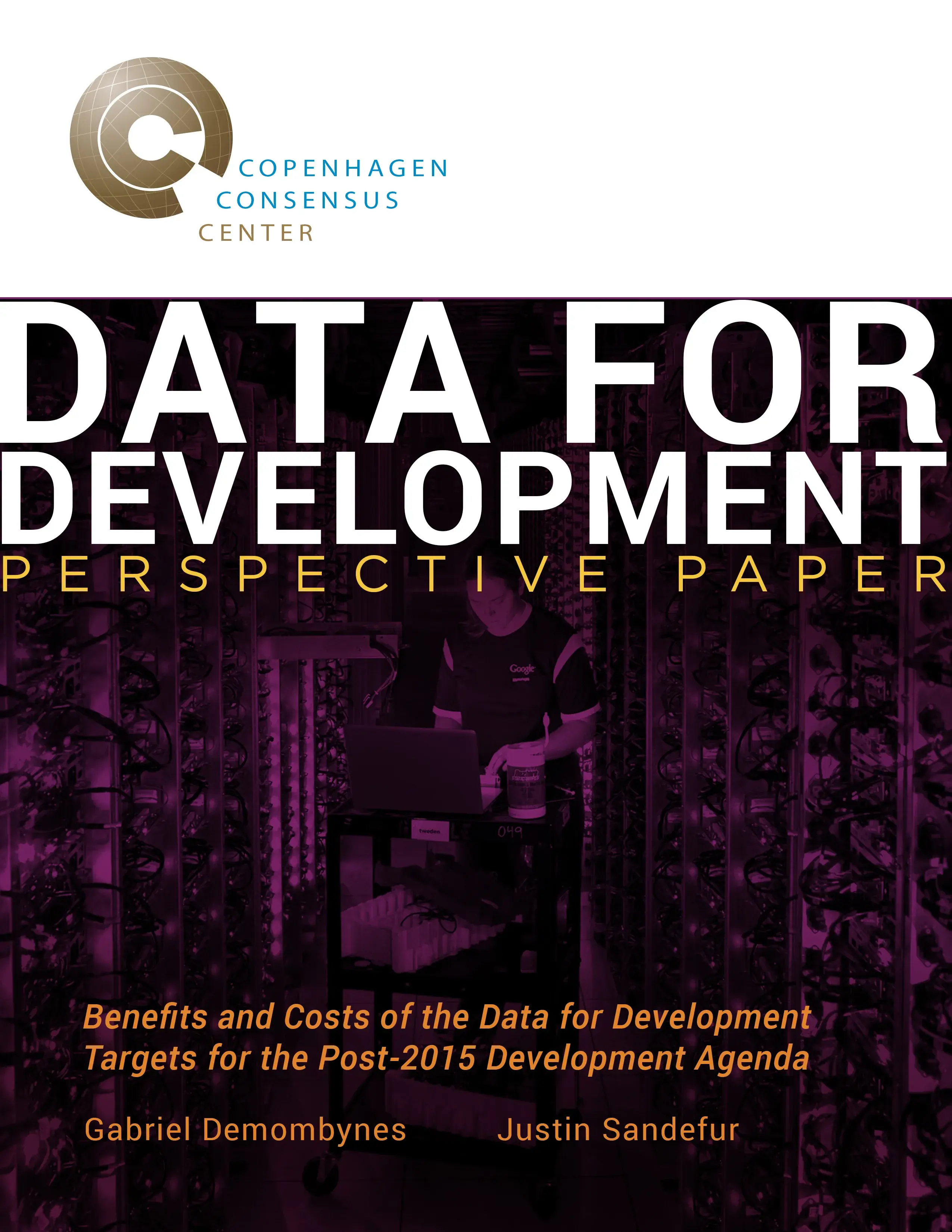
Viewpoint Paper
Claire Melamed, Head of the Growth, Poverty and Inequality Program at the Overseas Development Institute commends Morten Jerven’s assessment paper for pointing out that even some of the best ideas such as the data revolution have costs. Melamed’s viewpoint paper focuses not on how much the data revolution would cost but instead if the costs are worth the benefits. Melamed suggests that in order to make that decision more research is needed on the benefits of the data revolution.
Whatever the scale of additional funds, and wherever they come from, they involve making a choice to fund data rather than something else. The question is still, is it worth it?"
- Claire Melamed
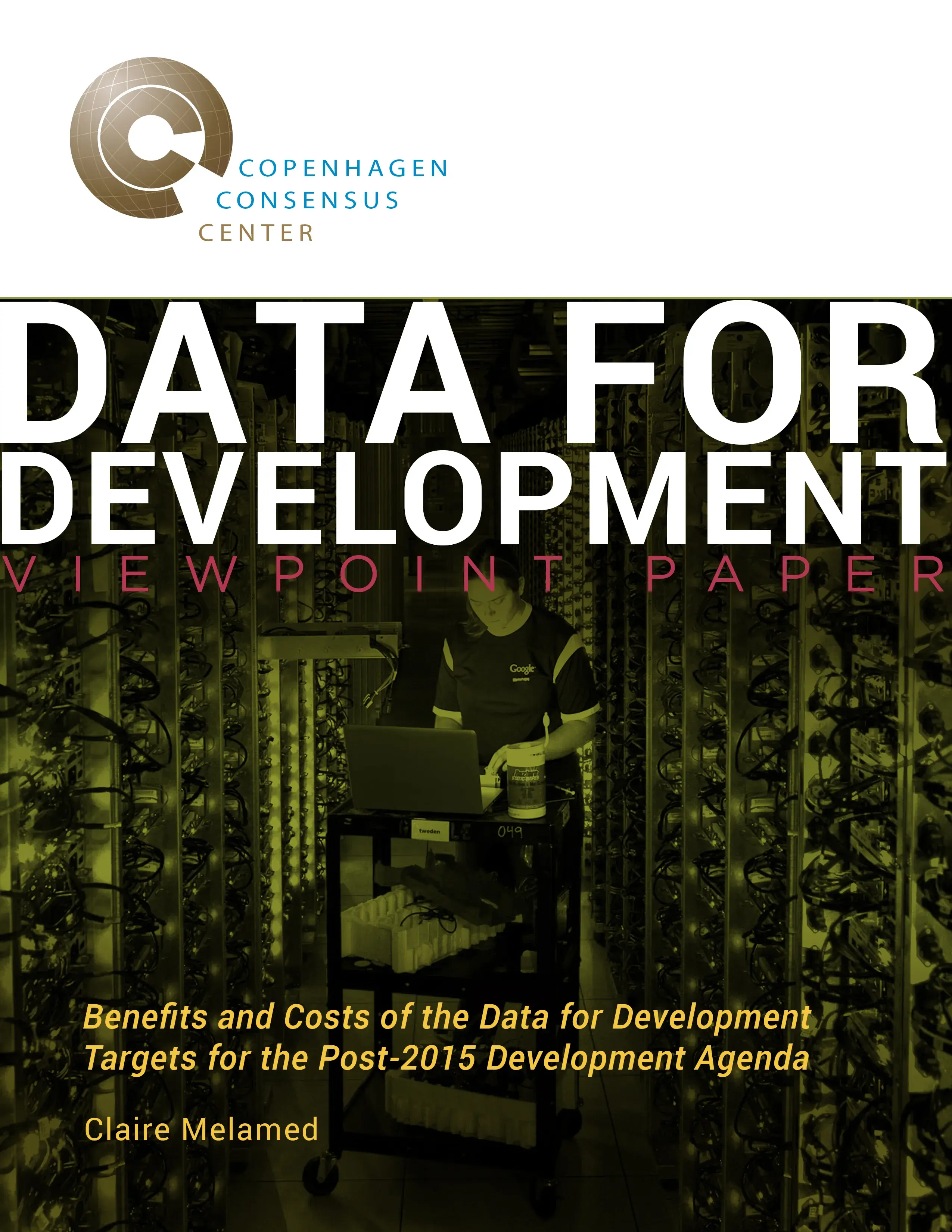
Viewpoint Paper
The viewpoint of Serge Kapto, Policy Analyst at UNDP finds that Morten Jerven raises a very valid question in regard to how to pay for the data revolution. However, Kapto expresses that instead of worrying about “what we can afford to do” the development agenda should be focused on “what do we need?” followed by “how do we pay for it?” Finally, this viewpoint paper develops a path forward in which to cover the costs necessary for the data revolution.
The challenge now is to ensure that the level of political interest remains high, that the level of ambition is not weakened in the quid pro quo of intergovernmental negotiations in the year ahead, and that the political commitment leads to concrete funding allocations, partnerships and cooperation for strengthening data for development capacity across the board. And for that, all hands are needed on deck!"
- Serge Kapto
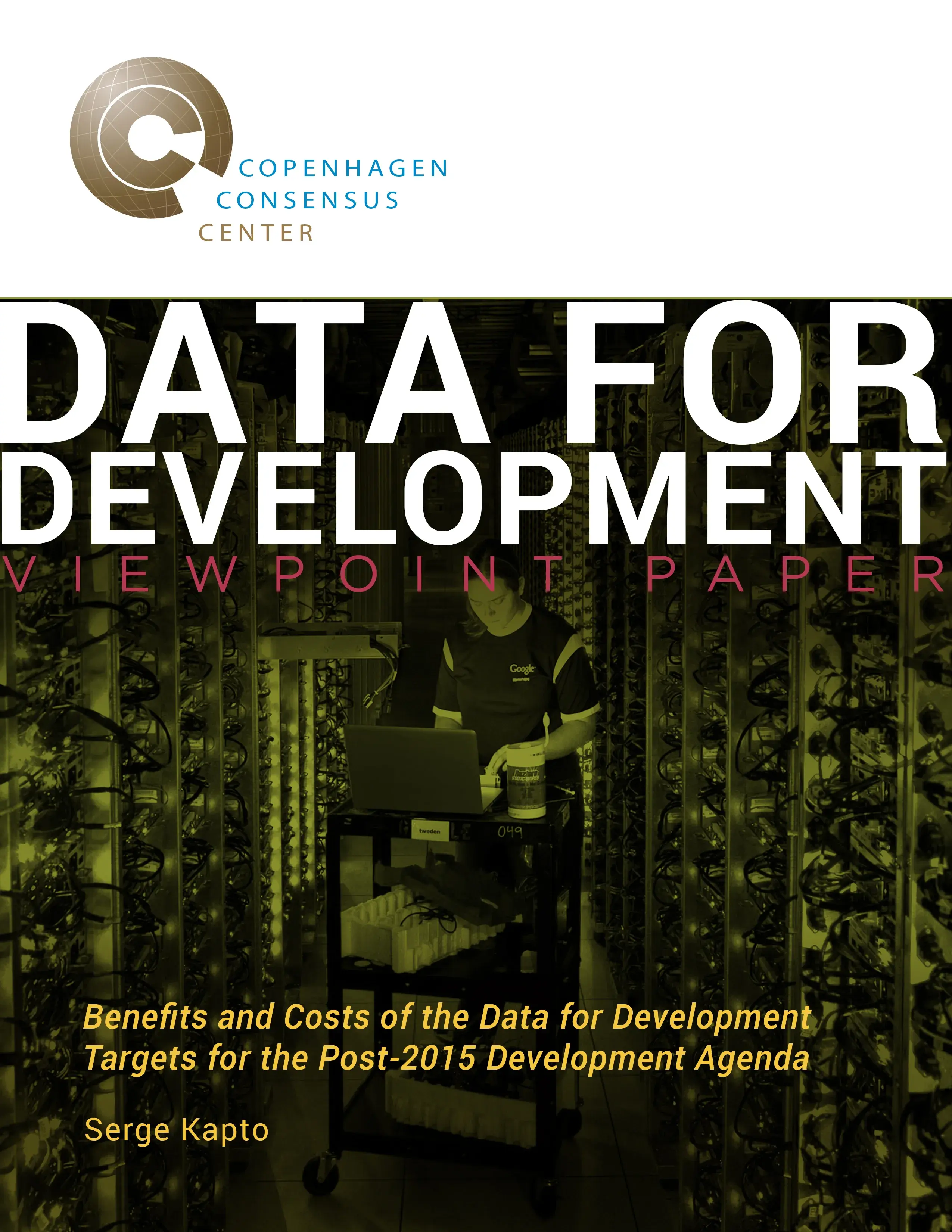
The Post-2015 Consensus project brings together 60 teams of economists with NGOs, international agencies and businesses to identify the targets with the greatest benefit-to-cost ratio for the UN's post-2015 development goals.



